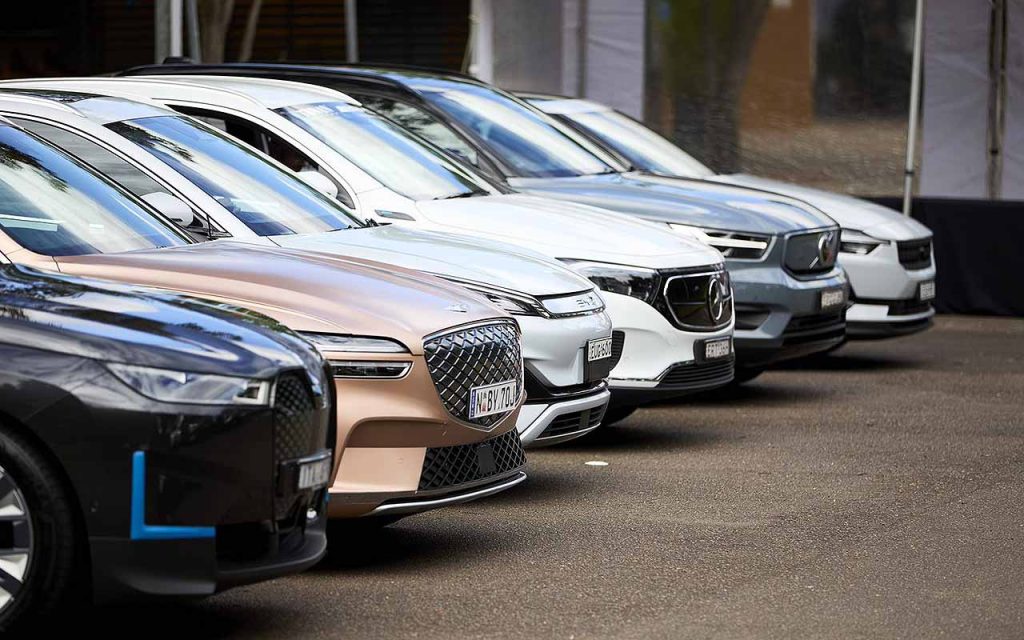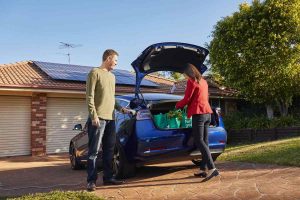Why are people reluctant to buy EVs?
EVs are an increasingly popular choice for consumers and business, but in Australia their take-up has been relatively slow. Why?

At ARENA, we love electric vehicles (EVs). They’re a key weapon in the battle to remove the 11 per cent of Australia’s greenhouse gas emissions from petrol, diesel and fueled light vehicles.
But in Australia, EV take up has been slow to take off. In 2022, global sales of new EVs made up around 14 per cent of the new car market. But here at home, the figure was less than 4 per cent.
Sales figures have improved in the first half of 2023 to more than 8 per cent, but that’s still a long way behind the rest of the world.
So, why the reluctance?
According to the EY Mobility Consumer Index 2023, a global survey of 15,000 respondents in 20 countries, the top three reasons holding drivers back are:
- Lack of charging stations – 31 per cent
- Limited range of EVs – 29 per cent
- Upfront purchase cost – 28 per cent
Let’s tackle each of those issues in turn.
Q: I love the freedom of the open road but there are nowhere near as many charging stations as petrol stops. How and where will I fill up?
There has been some truth to this concern in Australia, but the situation is changing.
The type of charging station you’ll most likely want to come across on the open road would be fast DC chargers.
But, according to the Electric Vehicle Council, a national body representing interested parties in the electric vehicle industry in Australia, in December 2022, there were fewer than 2400 public charging locations. Of those, just 365 had fast chargers, and only 99 offered ultra-fast chargers.
To meet this challenge, ARENA has over the years awarded funding to several fast charging network projects. Recipients have included Engie, Chargefox, Ampol and Evie.
In April 2023, ARENA, as part of the Government’s $500 million Driving the Nation Fund, announced $70 million in funding aimed at boosting the availability of charging stations across Australia. This pool of funding will initially support innovation in both public charging facilities and the management of charging.
Q: And while we’re at it, I don’t want to be that loser on the side of the road who has run out of charge. How often will that happen?

Be honest with yourself. How far do you actually drive each day? Would it surprise you to hear that the average vehicle in Australia travels only 36 km daily?
An overnight charge at home (every current EV model can plug straight into a regular wall socket) should add around 90 km of driving range. So, on average, topping up your EV every night will add a net increase in driving range of 50 km.
It’s a different way of looking at refueling. Instead of running the petrol tank close to zero and then filling up, drivers may grow accustomed to seeing their fuel gauge almost always close to full.
Q: EVs cost a lot but I’m not made of money. How can I afford one?
Again, in the past this has been a genuine concern. But, again, the situation is changing.
You can now buy a new EV for less than $40,000. Prices are expected to drop as manufacturers introduce new models aimed at the non-luxury market and because battery costs are plummeting.
Meanwhile, the second-hand market is expected to grow. One of the chief drivers of the used car market is the fleet car. Fleet users account for nearly half of all passenger vehicles sold in Australia and operators tend to turn over their cars regularly. That provides a steady supply of second-hand cars.
ARENA in April 2023 provided $6.2million to the $12.8 million Origin Accelerate EV Fleet Program. The program will see Origin Energy lease 1000 passenger EVs and 1000 smart chargers (one for each supplied EV) to fleets across the country.
Not only will the program provide insights into running EV fleets but one of its specific aims is to make EVs more affordable to Australians by increasing the number available in the second-hand market.
How ARENA is supporting the uptake of EVs
Decarbonisation of transport is a key priority for ARENA
Since 2015, ARENA has announced over $146 million in funding to projects that decarbonise the transport sector, including fast charging stations, hydrogen refueling and household smart charging.
ARENA has also supported heavy vehicle fleet operators, including Team Global Express’ Depot of the Future project, Australia’s largest order of electric trucks to date.
Even more recently, in April 2023, ARENA announced $70 million from the Driving the Nation Fund would be aimed at stimulating innovation around public charging stations and the management of charging.
All these programs help industry and consumers take necessary steps towards reducing Australia’s transport emissions in line with international commitments.

Andrew Webster